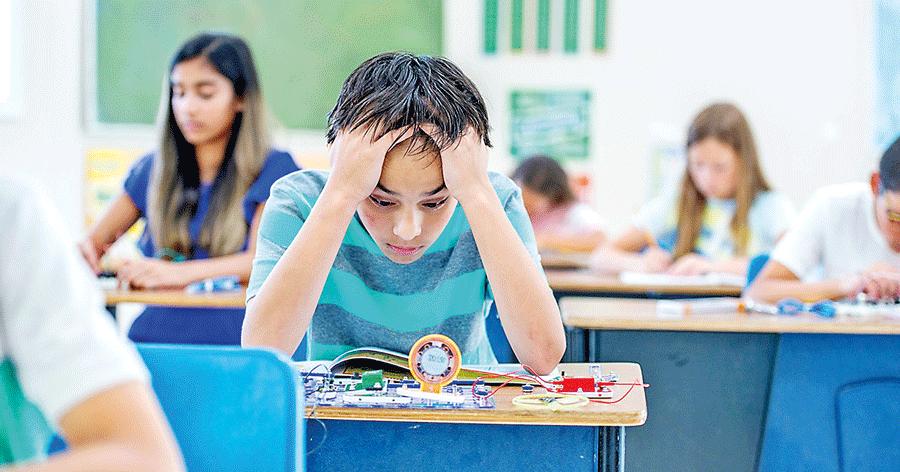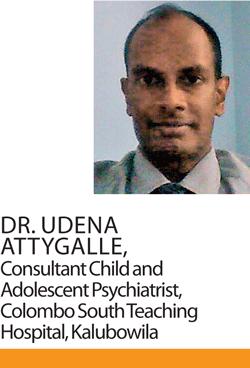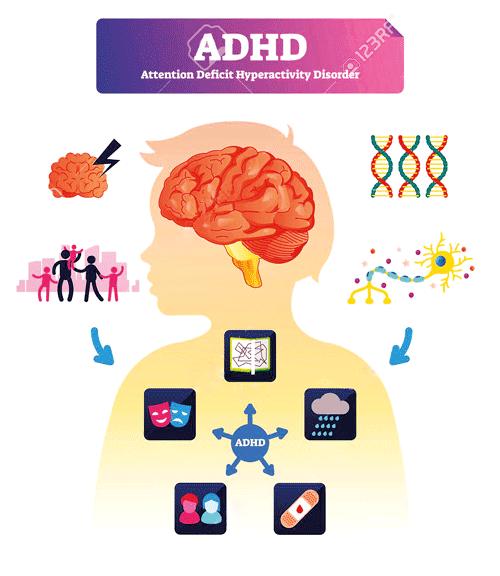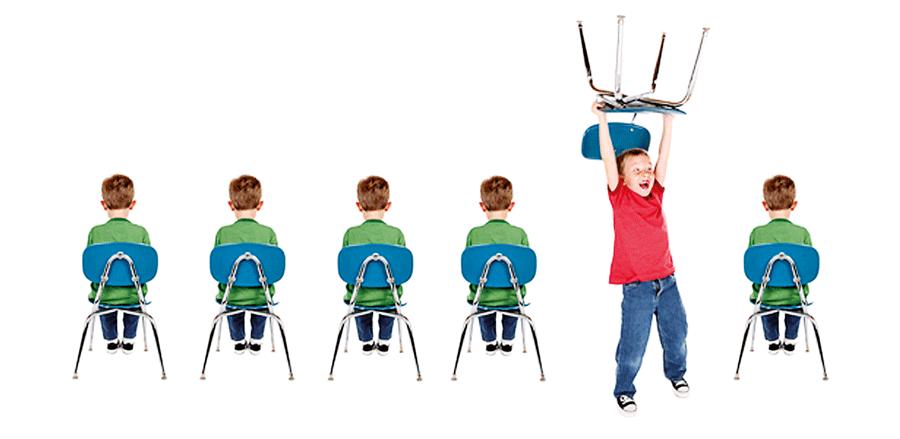05 Jul 2019 - {{hitsCtrl.values.hits}}


ADHD is a term that young children who are active and fidgety are frequently labelled with. But what really is ADHD? How do you know if your child really has ADHD? Is it incurable? Do these children have learning difficulties as well? What are the chances of this condition affecting the child’s future and the choice of profession? We in health Capsule discussed all these burning questions that the parents have, with Dr. Udena Attygalle, Consultant Child and Adolescent psychiatrist, Colombo South Teaching Hospital, Kalubowila. Below are some excerpts of the interview.
About ADHD
Attention Deficit Hyperactivity Disorder; ADHD in short, is commonly diagnosed in early childhood, usually around age 6-7 when the child starts schooling.There are three characteristic features that come under the definition of ADHD. These are,

ADHD is more common in boys when compared with girls. These children are more active when compared with the other children. They can be seen frequently running about seeking the attention of people around them. Their behavior may be particularly notable at school, with them not focusing on the lessons and disrupting other children in the class, which may even result in rejection from school.
Some of the children diagnosed with ADHD have a tendency to engage in risky behaviour; for example jumping from heights, and causing themselves injury. While another child would learn his lesson after one fall and keep away from heights, but these children tend to forget these incidents and make a habit of repeating them.
Other psychiatric conditions like Obsessive Compulsive Disorder (OCD) and Tic disorder are also found to co-exist with ADHD
Effect on intelligence
Many people, even parents and teachers believe that children with ADHD have low intelligence. This is a completely false claim, affirms the doctor. These children have completely normal intelligence when compared with other children of their age, while it’s their ability to regulate actions that is not yet matured. “For an example a 9-year-old child with ADHD will have the intelligence of a 9-year-old, yet its ability to regulate his actions and attention would be that of a 5 year old”, explains Dr. Attygalle. This happens due to the delay in development of the nerves that are responsible for focusing and regulating the child’s actions.
On the down side, in IQ testing as in most things academic, sustained attention is important. Thus these children tend to perform poorly.
Even though most with ADHD have no intellectual issues, those with intellectual disabilities due to other causes can have difficulties with paying attention when co- existing with those affected by ADHD.
Downside of ADHD
Medical and psychiatric treatment is extremely important in the case of ADHD, because if it goes untreated, this condition has the ability to significantly affect the child’s future including higher education, future profession and social interactions.
Unlike with an average child, it takes a lot of effort for a child with ADHD to focus on one task. This usually results in them abandoning tasks that need focus, a few minutes after starting them. Because of the child’s inability to concentrate on studies, his academic work would suffer. More ever, he has a risk of being labeled ‘lazy’ or ‘misbehaving’ by peers and teachers.
ADHD has the ability to affect a child’s relationship and interactions with his peers as well. For an example, after recognising the daring nature of the child, his peers may make the child engage in risky behaviour that they themselves would not undertake. In addition, there is a risk of being made the culprit even when he is innocent, since the teachers would automatically assume that the child has done it.
Around 70 per cent of those affected tend to issues with what we call executive functions like working memory, organization, planning, decision making , delaying gratification ect. These too become handicaps in day-to-day life.
There is a risk of secondary psychological issues like secondary depression as well; the child automatically assuming that he ‘must be a bad boy’, because everyone is calling him one. It has been found that if untreated, they have a higher risk of conduct issues, in childhood as well as later in life.
Other psychiatric conditions like Obsessive Compulsive Disorder (OCD) and Tic disorder are also found to co-exist with ADHD.
Medical and psychiatric treatment is extremely important in the case of ADHD, because if it goes untreated, this condition has the ability to significantly affect the child’s future
ADHD in adults
ADHD is not exclusive for children. Some children who are diagnosed with ADHD will continue to have disease traits well into adulthood, while some would be diagnosed only later in life. Most of the adults with ADHD would have difficulty in paying attention rather than having problems with hyperactivity. This is because hyperactivity and impulsivity tend to resolve when the child is around 10 years of age. In addition, the adults with ADHD would complain of low memory and are likely to be very slow readers.
If the child has above average intelligence and/or if the demands on him are not very challenging, they would be able to cope comparatively well, taking a long time to be diagnosed.
All these negatives aside, ADHD does have its perks. “With their inability to focus on tasks taking a long time, these children have the ability to think creatively and have remarkable lateral thinking abilities. As a result they strive in the fields that they are good at”, he claims.

Treatment
Treatment using drugs has the most proven benefits when it comes to the treatment of ADHD, explains the doctor. During the time that the medication is active in the body, a child is able to sit down and focus on work like a normal child. But the main disadvantage when it comes to ADHD medication is that the duration of action of these medications is too short.
Therefore getting them to engage in productive activities during this time period is important. This would also give the child the satisfaction of completion and the sense of achievement, which would affect positively in treatments.
Psychological therapy like behavioural management, environmental modification to better suit the child’s needs, and cognitive training would also help in treating the child. It’s important to have a quiet place with minimal distractions for the child to work, as well as a person who is there to guide the child through helping him focus on work.
While parents are naturally worried about starting medication at a young age, more harm can happen if the child is not treated appropriately, explains the doctor. Not taking treatment would result in delay in the child’s development as well as psychological distress to the child.
Thriving with a diagnosis of ADHD
Getting diagnosed with a psychiatric condition at such a young age and having to be on long-term medication can be a traumatizing and a scary experience for the parents as well as for the child. But the outcome of the disease is extremely positive with long term treatments. In fact, Michael Phelps, famous swimmer was diagnosed to have ADHD as a child, yet went on to become the most decorated Olympian of all times.
So if you suspect your child of having ADHD, take him to your family paediatrician, who will direct you towards the necessary treatment if needed. With prompt treatment enabling his full potential, the sky will be the limit for your child.
22 Dec 2024 53 minute ago
22 Dec 2024 1 hours ago
22 Dec 2024 4 hours ago
22 Dec 2024 4 hours ago
21 Dec 2024 21 Dec 2024